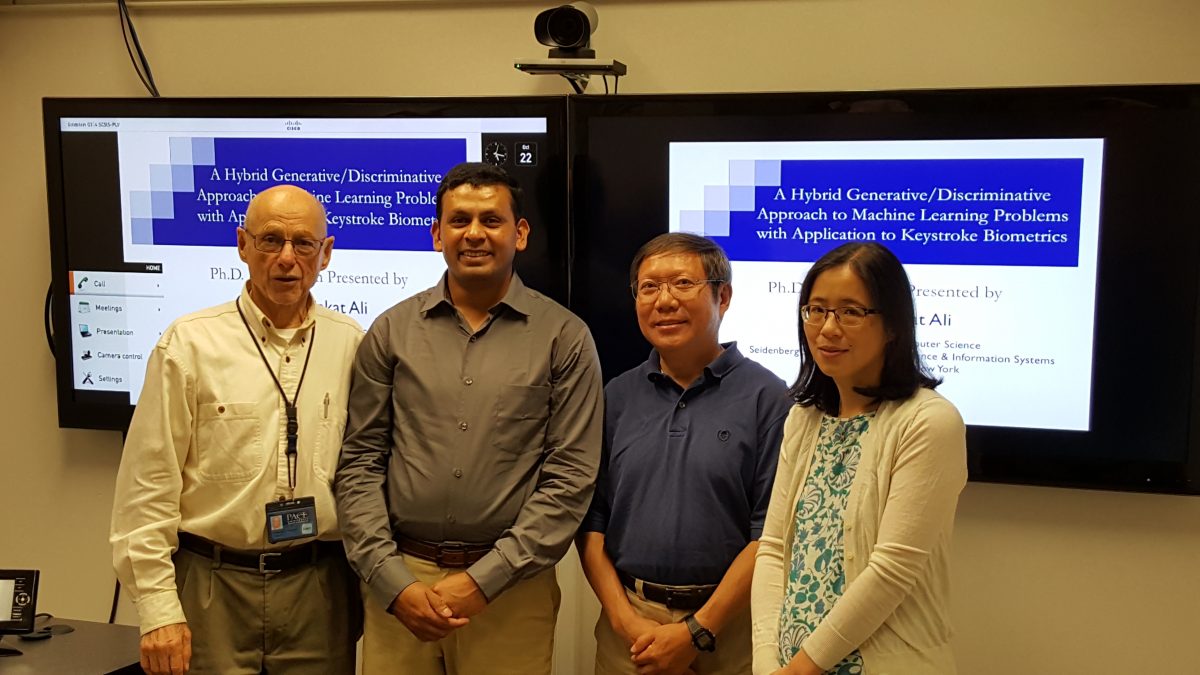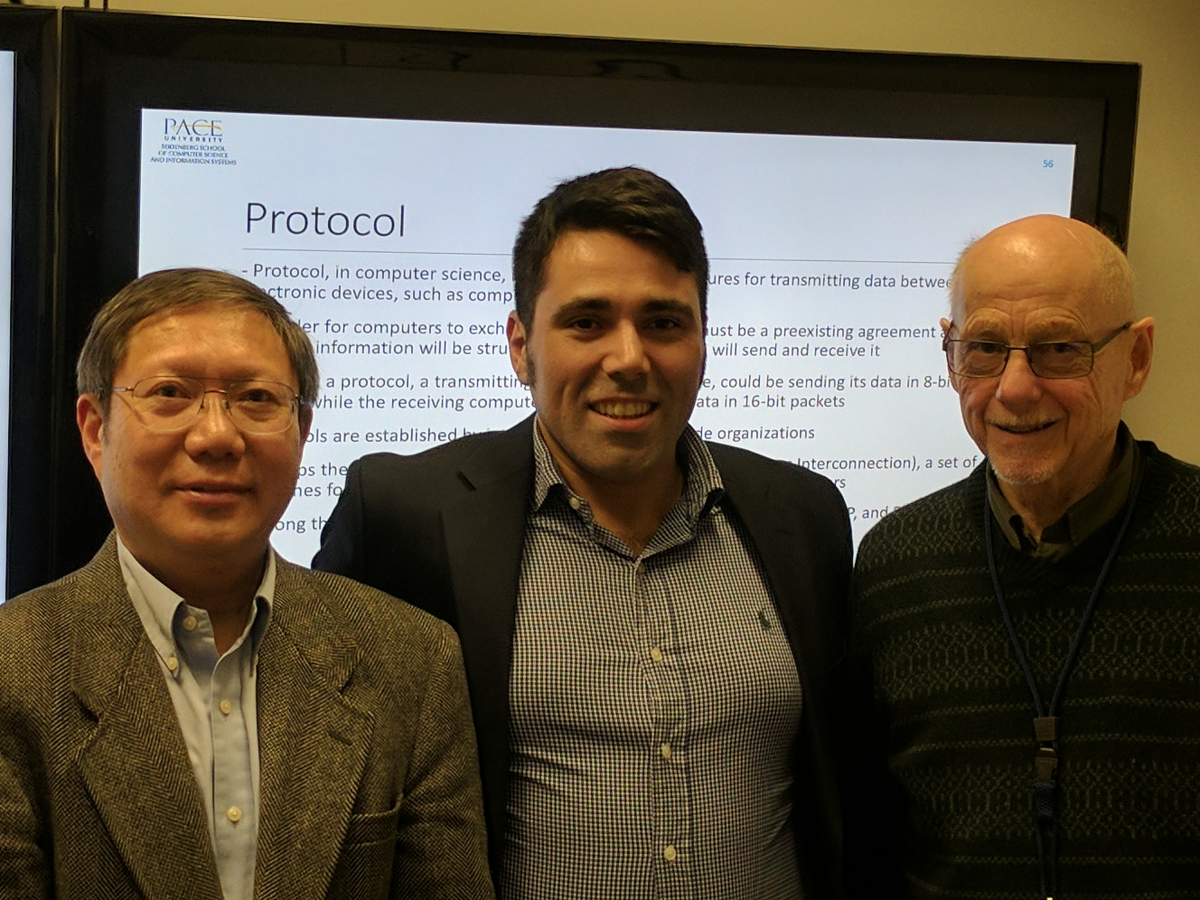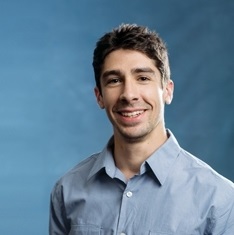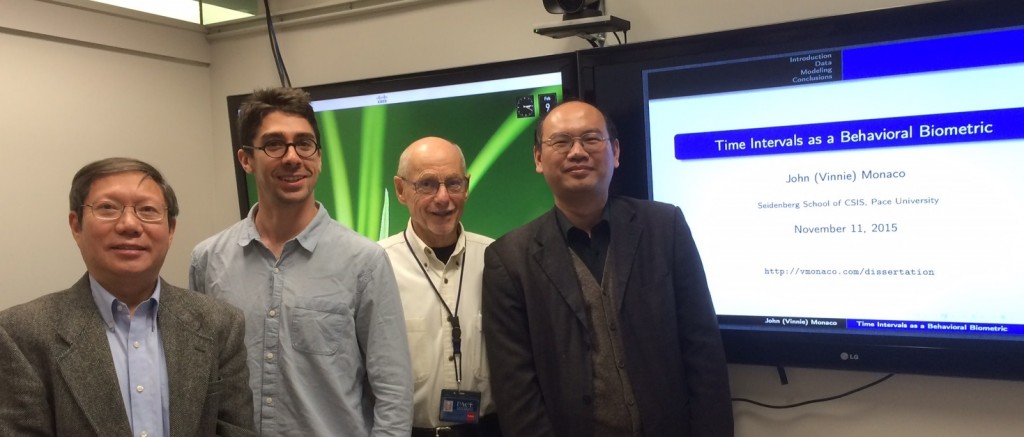The Seidenberg School of Computer Science and Information Systems’ PhD in Computer Science program has been seeing a lot of success recently! Although still a young program, we are starting to see our talented PhD students who enrolled near the very beginning achieving their goals. We are very proud to announce the successful dissertation defenses by new PhD Dr. Md Liakat Ali!
“The last three years of my life at Pace University have taught me so many things,” said Dr. Ali. “On the very first day at Pace, I got an email from Dr. Charles C. Tappert for Pattern Recognition and Machine Learning class. At the end of email, there was a quote: ‘If we knew what it was we were doing, it would not be called research.’ – Einstein. Dr. Tappert, my supervisor, a wonderful professor and an expertise in biometric areas . . . inspired me in so many ways to complete my PhD.”
Dr. Ali’s dissertation, “A Hybrid Generative/Discriminative Approach to Machine Learning Problems with Application to Keystroke Biometrics,” involved the design and implementation of a novel method for tackling machine learning problems that worked to increase security using keystoke biometrics. The way we interact with our devices gives clues to who we are: how we swipe screens, the pressure we exert, the speed with which we type; all of this can be used as identifying factors that can be used to further secure our devices and digital accounts.
Currently, Dr. Ali is a Computer Science professor at Caldwell University, NJ, and is committed to continuing to pass on his knowledge in the classroom. “[M]y goals are to teach IT courses with most advanced theory and practical application, making students’ enthusiastic for advancement in technology and increasing their opportunity. I would like to continue teaching and research in Computer Science.”
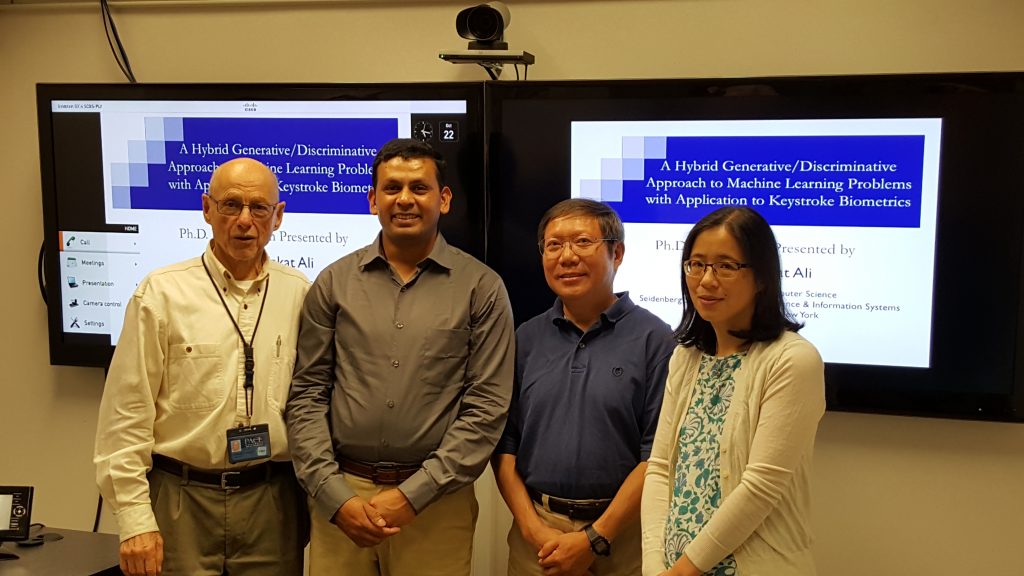
He has published more than 20 international conference and journal papers, including at IEEE conferences on Smart Cloud, Cybersecurity and Cloud Computing, and Big Data Security on Cloud.
Fellow PhD student Avery Leider attended Ali’s defense. “What was awesome about Liakat Ali’s PhD Dissertation is that he continued research that was done earlier by the first PhD of the Computer Science PhD program at Pace University, John Vincent “Vinnie” Monaco, who did groundbreaking work in user authentication using the biometrics of how a person types on the keyboard. Vinnie now works as a Computer Scientist at the U.S. Army Research Laboratory. Ali used that research, and went farther than Vinnie did, making this closer to being able to be used every day. Ali and Vinnie were both students of Dr. Tappert, who advised them on their PhD dissertations because that is work that he has been interested in for years. Maybe Pace University will become famous for keystroke biometrics!”


